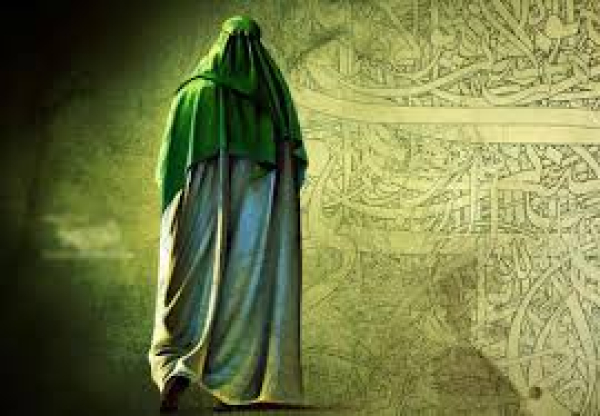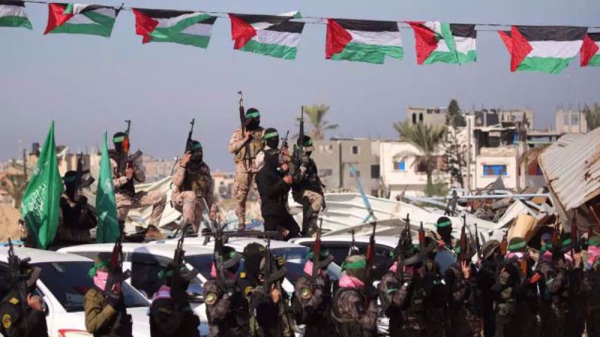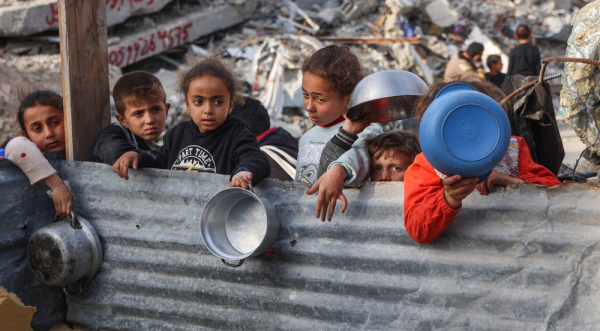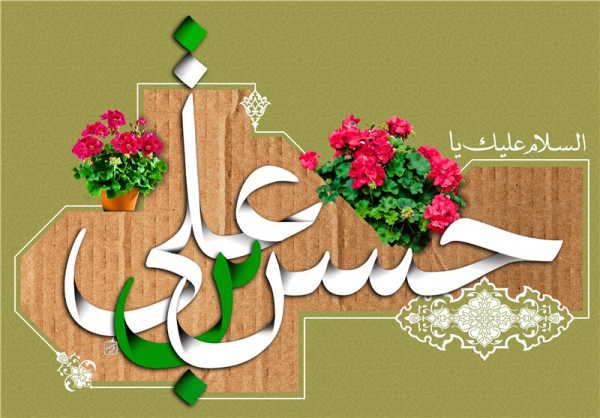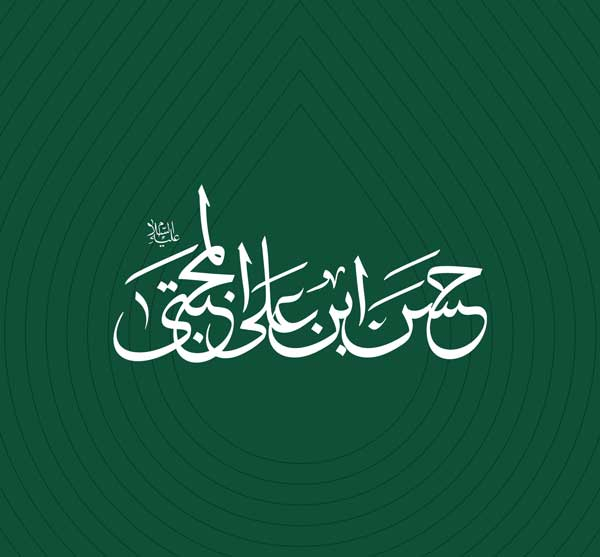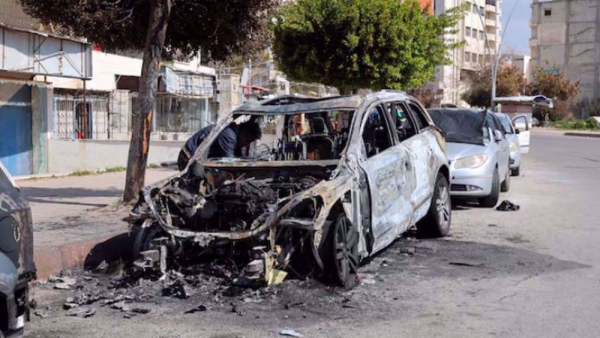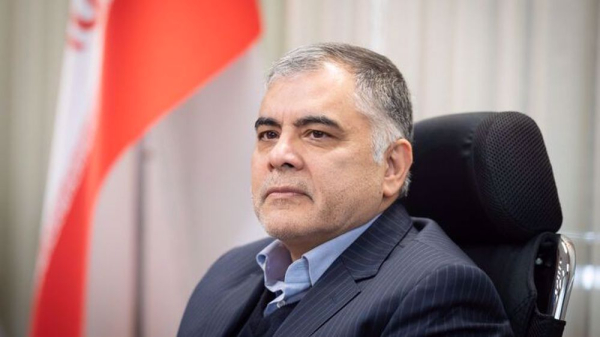zarezadeh
What are the characteristics of Hazrat Mahdi?
It has been narrated from Imam Hussain (a.s.):
You will recognize Mahdi by his calmness, dignity, knowledge of the lawful and the unlawful, and the need of everyone for him and his lack of need for others.
It has been narrated from Imam Sadiq (a.s.):
By God! His clothes are nothing but rough cloth and his food is nothing but simple food.
It has been narrated from Imam Reza (a.s.):
He is the most knowledgeable of people, the wisest of people, the most pious of people, the most generous of people, and the most devout of people.
The author of the book Bishara al-Mustafa narrates from Laith ibn Tawas that:
Mahdi is a generous person who gives wealth in abundance, is very strict with his officials and government officials, and is very kind and compassionate to the poor.
(Book of the Sun of Mehr)
What is the Islamic view on the advent of the Savior?
In the holy religion of Islam, the issue of the promised Savior and the Savior is clearly raised. The Quran, the holy book of Muslims, refers to the rule of the righteous on earth and the dominance of the true religion in numerous verses. Among them is verse 105 of Surah Al-Anbiya. In this verse, God states that My righteous servants will inherit and take possession of the earth. He also states that this is a truth that has been mentioned in the books of the past prophets. In verse 55 of Surah An-Nur, God promises people who believe and do righteous deeds that He will leave them the caliphate and government on earth and establish and establish their religion. At such a time, complete peace and security will be established in the world and people will worship and serve God.
God, in three places in the Quran (At-Tawbah: 33 and 34; Al-Fath: 28; Al-Saff: 8), states that the religion of Islam will prevail over all religions; although the disbelievers and polytheists do not want it and He introduces Himself as a witness to such an event. Of course, considering the narrations that have been issued in the interpretation and explanation of the divine verses from the infallible leaders, it can be seen that more than 250 verses of the Quran refer to Imam Mahdi (a.s.) and the rule of justice and religion. In addition to the Holy Quran, numerous narrations about him have been mentioned in important Shiite and Sunni books of narration, and numerous books have also been written specifically for that Imam; For example, we can mention Kamal al-Din and Tamam al-Naamah, by Sheikh Saduq, Al-Ghaybah, by Nomani and Kitab al-Ghaybah by Sheikh Tusi from past scholars, and Mantab al-Athar, by Lotfollah Safi Golpaygani from contemporary Shiite scholars, or Al-Fitn, by Ibn Hammad and Al-Arbaeen, by Abu Naeem Isfahani from Sunnis.
The Holy Prophet (PBUH) said: “Mahdi is from my lineage, from the descendants of Fatima (PBUH).”
It is appropriate to mention that according to Shia belief, Imam Mahdi (AJ) is the son of Imam Hassan Askari (AS), who was born in 255 AH and is now behind the veil of occultation and will be alive until God permits his reappearance and resurrection; however, according to Sunnis, he has not been born; rather, he will be born at the end of time, about forty years before his reappearance.
(Kitab Aftab Mehr)
Do Jews accept the appearance of the Savior of the End Times?
In the Torah and its appendices, there are many good news about the coming of the promised one and the appearance of a global reformer in the End Times, some of which are mentioned:
A. Good news of the appearance in the Psalms of David:
In more than 35 parts of the one hundred and fifty psalms, there is a promise of the appearance of the promised one of the nations and the Savior of the world:
"For the wicked will be cut off; but those who trust in the Lord will inherit the earth; for the arms of the wicked will be broken, but the Lord will support the righteous. The Lord knows the days of the righteous, and their inheritance will be eternal. The righteous will inherit the earth and dwell in it forever; but the arms of the wicked will eventually be broken, and eventually the wicked will be cut off."
B. The Good News of the Revelation in the Book of Isaiah:
In a part of this book, God promises the imminence of the realization of His justice and calls upon the faithful to practice justice, saying:
“Keep justice, bring forth righteousness; for My salvation is near to come, and My righteousness to be revealed. Then justice will dwell in the wilderness, and righteousness will dwell in the fruitful field; and the work of righteousness will be peace, and the effect of righteousness, quietness and assurance forever. And My people will dwell in a peaceful abode, in secure dwellings, and in quiet dwellings.”
Is the belief in the coming of a savior in the future exclusive to Muslims, especially Shiites?
Futurism, meaning the belief in the emergence of a great heavenly savior and the hope for a bright future in which worries and fears will be removed and, thanks to the emergence of a distinguished divine personality, all darkness will be removed from the universe and the roots of oppression, ignorance, and corruption will be uprooted from the face of the earth, is a general and consistent belief that has always been prevalent and common among all nations, everywhere and at all times.
In books related to religions, we come across various names and titles of the Savior; for example
_ In Judaism: Messiah
_ In Christianity: Christ
_ In Zoroastrianism: Sochiness
_ In Hinduism: Vishnu, Kalki or Kalkin
_ In Buddhism: Fifth Buddha Maitreya
_ In Islam: Mahdi, Qa'im
What is used from the history of nations is that the issue of belief in the emergence of a powerful divine leader and the coming of a reformer at the end of time, in the name of the promised Savior of the world, is so genuine and deep-rooted that it has taken root in the hearts of nations and followers of all divine religions and all tribes and nations of the world, to the extent that throughout human history, humans, in the ups and downs of life, by remembering the emergence of such a powerful leader, have constantly saved themselves from despair and hopelessness, and are counting the minutes while waiting for the emergence of that promised global reformer at the end of the world.
(Book of the Sun of Mehr)
Hamas says ready to free Israeli-US captive, bodies of four others
The Palestinian resistance movement Hamas has expressed its readiness to release an Israeli-American captive and the bodies of four others, after the group and the Israeli regime resumed indirect Gaza ceasefire negotiations.
"Yesterday, a Hamas leadership delegation received a proposal from the brotherly mediators to resume negotiations," Hamas said in a statement on Friday.
The movement said its reply "included its agreement to release the Israeli soldier Edan Alexander, who holds American citizenship, along with the remains of four others holding dual citizenship".
Hamas official Taher al-Nounou told AFP that all five are Israeli-Americans.
Hamas, however, said the move is conditional on beginning of the talks on the second phase of the ceasefire agreement towards a permanent end to the genocidal war.
The statement came as a senior Hamas official announced on Tuesday that fresh talks had started in the Qatari capital, Doha, with Israel also sending negotiators.
Israel launched the campaign of genocide in Gaza on October 7, 2023. It has killed over 48,500 Palestinians there so far.
In January, the Israeli regime was forced to agree to a ceasefire deal with Hamas given the regime’s failure to achieve any of its objectives, including the “elimination” of the Palestinian resistance movement or the release of captives.
During the first phase of the deal, Hamas exchanged 33 Israeli captives and five Thais for some 2,000 Palestinians.
The 42-day stage of the truce, which was marred by repeated Israeli violations, expired on March 1, with Israel calling for an extension of the truce to allow the release of the remaining captives. There has been no mention by the regime of any commitment to end the war or fully withdraw its troops, however.
Hamas has insisted on proceeding to negotiations on a permanent ceasefire before agreeing to any further releases.
Press TV’s website
Israeli aid block costing Gaza children their lives: UNICEF
UNICEF, the United Nations agency for children, warns that Israel’s blockade on the entry of humanitarian supplies into the Gaza Strip is costing Palestinian children their lives.
UNICEF Executive Director Catherine Russell warned Saturday that the escalation in child malnutrition in Gaza is “shocking, especially when desperately needed assistance has been at the ready just a few miles away.”
UNICEF, she said, is “being hampered by unnecessary restrictions, and those are costing children their lives.”
According to Russell, “an immediate humanitarian ceasefire continues to provide the only chance to save children’s lives and end their suffering.”
UNICEF has warned that malnutrition was spreading rapidly across Gaza due to restricted aid.
In northern Gaza, it said, one in three children under two years of age suffers from acute malnutrition.
The UN agency said at least 23 children have lost their lives from malnutrition and dehydration in recent weeks.
A ceasefire agreement between Israel and Hamas allowed a surge of aid into Gaza after more than 15 months of full blockade on the Gaza Strip.
But immediately after the first phase of a truce deal expired on March 1, the Tel Aviv regime cut off humanitarian supplies to the coastal territory, using aid as a bargaining chip.
Israel has said it wants to extend the first phase until mid-April, but Hamas insisted on a transition to the second phase, which should lead to a full Israeli withdrawal from Gaza and a complete halt to its military campaign in the besieged territory.
The Palestinian resistance group said Saturday that it will only release an American-Israeli captive only if the regime implements their ceasefire agreement, calling it an “exceptional deal” aimed at getting the truce back on track.
It said long-delayed talks over the second phase would need to begin on the day of the release of the captive and last no longer than 50 days.
Israel also would need to stop barring the entry of humanitarian aid and withdraw from a strategic corridor along Gaza’s border with Egypt, Hamas said.
Under the ceasefire deal, Hamas released 33 Israeli captives in exchange for about 1,900 Palestinian prisoners and detainees.
Edan Alexander, who was a soldier with the Israeli military, is believed to be the last living American-Israeli captive held by Hamas in Gaza.
Press TV’s website
Moral Characteristics of Imam Mujtaba (AS)
Moral Characteristics of Imam Mujtaba (AS)
The manner, character, behavior and deeds of Imam Mujtaba (AS) were exemplary for the time. In a general summary, it can be concluded that historians have recorded the most important moral characteristics of his Imam as “the most generous, the most magnanimous, the most generous, the most meek, the most ascetic, the most truthful, the most pious, the most devout, the most honorable, the most forgiving and the most generous among the people.” Sheikh Saduq narrates in his book Amali about Imam Sadiq (AS) and his fathers as follows:
Imam Hassan (AS) was the most devout, the most pious and honorable among the people of his time. When he intended to perform Hajj, he would walk and sometimes bare his feet. He would never do anything except remember God. He was the most truthful of people and had the most eloquent speech. When he reached the door of the mosque, he would raise his head to the sky and offer:
O God, your guest is standing at the door of your house, O benefactor! A sinful servant has come to you, forgive me for the good that is with you, and for the bad that is with me."[7]
Jabir bin Abdullah Ansari says:
I heard Imam Mujtaba (a.s.) say: The noblest of morals are ten things: 1. Truthfulness; 2. Honesty in humility; 3. Giving to the beggar; 4. Good temper; 5. Rewarding deeds; 6. Bonding with relatives; 7. Supporting the neighbor; 8. Gratitude to the owner; 9. Hospitality; 10. The top of all these is modesty and modesty.[8]
If we want to examine the moral characteristics of the Imam, the best criterion is the Imam's own words, which we will examine some of his sayings.
1. Honesty in humility
The scope of the Imam's forgiveness and kindness was so extensive that it even included his killer. As "Umar bin Ishaq" says:
I and Husayn (a.s.) were at the moment We were martyred in the presence of Imam Mujtaba (AS) who said: “They have poisoned me many times, but this time it is different, because this time they have cut my liver into pieces.” Hussein (AS) asked with sadness: “Who poisoned you?” He said: “What do you want from him? Do you want to kill him? If it is the one I know, the wrath and punishment of God will be greater than yours. If it is not him, I do not want him to be caught innocent because of me.”[9]
2. Humility
The Imam, like his grandfather, the Messenger of God (PBUH), sat on the ground without any arrogance and ate with empty hands. One day, he was riding past a place when he saw a group of poor people sitting on the ground and had put some bread in front of them and were eating. When they saw Imam Hassan (PBUH), they introduced themselves to him and invited him to their table. The Imam got down from his mount and recited this verse: (Inna lai yihab al-mustakbarin); “God does not love the arrogant.”[10] Then they sat at their table and began to eat. When they were all full, the Imam invited them to his house and entertained them and gave them They gave him clothes.[11]
They always put others before themselves and always treated people with respect and humility. One day, while they were sitting in a place and about to leave, a poor old man entered. The Imam welcomed him and, out of respect and humility, said to him: “O man! When you entered, we wanted to leave. Will you allow us to leave?” The poor man said: “Yes, O son of the Messenger of God!”[12]
. Generous treatment of people
Ibn Shahr-Ashhub narrates in his book Manaqib:
A man asked Imam Mujtaba (AS) for financial assistance. The Imam gave him fifty thousand dirhams and five hundred dinars. Then he said: “Go and bring a porter to carry this money for you.” The man brought a porter. The Imam gave his green robe to the beggar and said: “This is the fare of the porter.”
Imam Mujtaba (AS) surpassed everyone in generosity and generosity; to the extent that he gave up his possessions with godly gifts and offered them all in the way of God’s pleasure. This in fact expressed his indifference to the deceptive appearances of the world. In this regard, it has been written:
Imam Mujtaba (AS) spent all his property and wealth in the way of God twice during his lifetime and divided his wealth into two halves three times, keeping half of it for himself and giving the other half in the way of God.[13]
5. Generosity and Meeting the Needs of Others
It can be said that the most prominent characteristic of Imam Mujtaba (AS), which is the best example for his friends, is his great generosity and taking care of others. He used to make everyone benefit from his generosity under various pretexts and gave so much that the needy person became needless; because according to the teachings of Islam, generosity should be in such a way that it eradicates the culture of begging and, if possible, removes the person from the circle of the needy. One day, the Imam was engaged in worship when a person was sitting next to him and said to God: “O God! Grant me ten thousand dirhams.” The Imam came to his house and sent him ten thousand dirhams.[14]
Imam Mujtaba (AS) never turned away a beggar and never said “no” to the needy and considered all the spiritual aspects of generosity. A man came to Imam Mujtaba (AS) and expressed his need. In order to avoid giving help face-to-face and not to embarrass the man, the Imam said: “Write what you want in a letter and send it to us so that your need may be met.” The man went and sent his needs in a letter to the Imam. The Imam also sent him what he had asked for. A person present there said to the Imam: “What a blessed letter that was for that man!” The Imam replied: “This was a greater blessing for me, which made me worthy of doing this good deed; because true forgiveness is when you fulfill a person’s need without asking, but if you give him what he asks for, it is in fact a price you have paid for his honor.”[15]
The Imam always prioritized meeting the needs of others. Ibn Abbas says:
I was with Imam Mujtaba (a.s.) in the Grand Mosque. The Imam was there in seclusion and engaged in Tawaf. A needy man came to him and said: “O son of the Messenger of God, I owe so-and-so a certain amount of money and I cannot pay his debt. If possible, [help me].” The Imam said: “To the owner of this house [and pointed to the Kaaba], unfortunately, I do not have any money at the moment.” The needy man said: “O son of the Messenger of God! Then ask him to give me a reprieve, because he has threatened me that if I do not pay my debt, he will throw me in prison.” The Imam interrupted his Tawaf and set out with the man to go to his creditor and ask for a reprieve. I said: “O son of the Messenger of God! It seems that you have forgotten that you have intended to observe I’tikaf in the mosque.” The Imam said: “No, I have not forgotten; but I heard from my father that the Prophet (PBUH) said: “Whoever fulfills the need of his believing brother is like one who has fasted for nine thousand years and spent his nights in worship.”[16]
6. Good-naturedness
Imam Mujtaba (AS) also had a kind heart towards the culturally poor and the ignorantly deceived. Although they treated the Imam with insults and disrespect due to the deception of their enemies; the Imam never got angry at their useless words and would caress them with kindness and compassion and strive to meet their needs. They too were amazed by the Imam's humble treatment and soon expressed regret for their words. A clear example of the Imam's humility towards the culturally poor and the religiously lost without identity is the meeting with the Syrian man whose story will be told later.
Similarly, the Imam always responded to kindness with kindness. Even his response to unkindness was kindness. The Imam had a beautiful sheep that they showed interest in. One day, they saw the sheep lying in a corner and moaning. They went further and saw that its leg had been broken. The Imam asked his servant: “Who broke the leg of this animal?” The servant said: “I broke it.” The Imam asked: “Why did you do that?” He said: “To make you sad.” The Imam said with a heartwarming smile: “But in return, I will please you and freed the servant.”[17]
7. Rewarding deeds
During the journey when the Imam was going on Hajj with Imam Hussain (AS) and Abdullah ibn Ja’far, a camel carrying provisions got lost and they were left hungry and thirsty in the middle of the way. At that time, they noticed a tent in which an old woman lived alone. They asked her for water and food. The old woman, who was a kind and hospitable person, milked the only sheep she had and then said: “Slaughter it for food so that I can prepare food for you.” The Imam slaughtered the sheep and the woman prepared food for them from it. They ate the food and after eating, they thanked the woman and said: "We are people from Quraysh who are going on Hajj. If you come to Medina, come to us so that we can repay your hospitality." Then they said goodbye to the woman and continued on their way. At night, the woman's husband came to her tent and she told him the story of the party. The man became angry and said: "How could you kill the only sheep that was all we had in this wilderness for people you didn't know?" A long time passed until the Bedouins flocked to Medina due to poverty and drought. The woman also came to Medina with her husband. One of these days, Imam Mujtaba (a.s.) saw the old woman in the alley and said: "O servant of God! Do you know me?" She said: "No." He said: "I am the same person who stayed in your tent with two people a long time ago. My name is Hassan bin Ali." The old woman was happy and said: "May my father and mother be sacrificed for you!" In return for her sacrifice and hospitality, the Imam gave her a thousand sheep and a thousand dinars and sent her to his brother Hussein (AS). He also gave her the same amount of sheep and dinars and sent her to Abdullah bin Ja'far. Abdullah, following his leaders, gave the same amount to the old woman.[18]
With this gratitude, the Imam both rewarded the good deed of the old woman and entertained the strange guest. He often said about the poor people who had been entertained by him:
Virtue is with them. Although their hospitality is small and they have no money, they are superior, because they have nothing other than what they entertain us with and have spent everything they have, while we have more money than what we leave for our guests.[19]
. Supporting the Neighbor
A Jewish family lived in the neighborhood of the Imam. The wall of the Jewish house had a crack through which impure moisture from his house was seeping into the Imam's house. The Jew was also unaware of this until one day a Jewish woman came to the Imam's house to ask for help and saw that the crack in the wall had caused the wall of the Imam's house to become impure. She immediately went to her husband and informed him. The Jewish man came to the Imam and apologized for his negligence and was ashamed that the Imam had been silent and had not said anything during this time. In order to prevent him from being further embarrassed, the Imam said: "I heard from my grandfather, the Messenger of God (PBUH), that you should be kind to your neighbors." The Jew, seeing this, forgave him and treated him kindly, went to his house, took the hands of his wife and child, and came to the Imam and asked him to convert them to Islam.[20]
9. Gratitude to the Rightful Owner
Kindness towards the servants of God was one of the prominent characteristics of Imam Mujtaba (AS). Anas says:
One day I was in the presence of the Imam when one of his maidservants entered with a flower in her hand and presented it to the Imam. The Imam took the flower from her and kindly said to her: “Go, you are free!” I, who was surprised by this behavior of the Imam, said: “O son of the Messenger of God! This maidservant only gave you one flower. Then you will set her free?!” The Imam replied: “The Great and Merciful God has told us that whoever shows you kindness, repay him twice as much.”[21] Then he said: “The reward for his kindness was his freedom.”[22]
10. Hospitality
The Imam always made a serious effort in welcoming guests. Sometimes he would welcome people he did not know. He was especially fond of welcoming the poor. They would take them to their homes, warmly welcome them, and give them clothes and wealth.
Throughout their blessed lives, Imam Hassan (AS) always walked on the path of guiding people, and the way he treated everyone - even his enemies - was so beautiful that it attracted everyone to him.
Historians have written:
One day, Imam Mujtaba (AS) was riding a horse. A Syrian man came across his path and cursed him. When he finished cursing, the Imam turned to him and greeted him! Then he laughed and said: "O man! I imagine you are a stranger here... If you ask us for something, we will give you; if you are hungry, we will feed you; if you are naked, we will clothe you; if you are in need, we will make you free from need; if you are driven from somewhere, we will shelter you; if you have asked for something, we will fulfill it. Come now and be our guest. As long as you are here, you are our guest..." The Syrian man, who saw all this solicitude and love from the Imam, began to cry and said: "I bear witness that you are the Caliph of God on earth, and God knows best where to place the position of Caliphate and Prophethood. Before this, I had a hard time hating you and your father, but now I consider you the most beloved of God's creation." From then on, that man was considered one of the friends and followers of the Imam and continued to be his guest as long as he was in Medina.[23]
Sources
The Holy Quran.
1. Ibn Athir, Izz al-Din, Asad al-Ghabah fi Ma’rifat al-Sahaba, Beirut: Darahiya al-Turat al-Arabi Publications, 1393 AH.
2. Isfahani, Imad al-Din Hussein, Life of Imam Hassan Mujtaba (AS), Tehran: Muhammad Publications, bi-ta.
3. Amin, Seyyed Mohsen, Imam Hassan (AS) and Imam Hussein (AS) (Shiite Nobles), first edition, translator, Research and Writing Department, Bija, Publications of the Joint Stock Printing Company (Ministry of Islamic Guidance), 1982.
4. Behbahani, Mohammad Baqir, Karim Ahl al-Bayt (AS), translator, Ebrahim Soltani Nasab, proofreader, Mohammad Ali Hosseinzadeh, first edition, Tehran: Siyam Publications, 1981.
Pishvai, Mahdi, Seerah of the Leaders, second edition, Qom: Imam Research and Educational Institute Publications, 1995.
5. Jafarian, Rasool, Intellectual and Political Life of the Shiite Imams (AS), first edition, Qom: Ansarian Publications affiliated with the World Center for Islamic Sciences, 1997.
6. Dashti, Mohammad, Dictionary of the Sayings of Imam Hassan Mujtaba (AS), first edition, Qom: Amir al-Momenin Publications, 1990.
7. Rashidi, Hossein, Life Imam Hassan Mujtaba (AS) (Stories and Instructive Hadiths from the Noble Ahl al-Bayt (AS), first edition, Qom: Bayan al-Haq Publications. 1389.
8. Sharif Qurashi, Baqir, Hayat al-Imam al-Hasan ibn Ali (AS), first edition, Beirut: Dar al-Balagha Publications, 1413 AH.
9. Qadiani, Abbas, Zindegani 14dah Masoom, first edition, Qom: Fardabeh Publications, 1380.
10. Qomi, Abbas, Muntahi al-Amal, first edition, Qom: Ansarian Publications, 1386.
11. Mazandarani, Muhammad ibn Ali ibn Shahrashub, Manaqib Al Abi Talib (AS), Qom: Allama Publications, 1379 AH.
12. Motawasal, Ahmad, The Miracles of Imam Hassan (AS) from Birth to Martyrdom, First Edition, Qom: Dar al-Fikr Publications, 1386.
13. Majlisi, Mohammad Baqir, Bihar al-Anwar, Beirut: Al-Wafa Publications, 1403 AH.
14. Hadi Manesh, Abolfazl, Aftab Hassan An Analytical Approach to the Life of Imam Hassan Mujtaba (AS), Second Edition, Qom: Daftar al-Aql Publications, 1387.
Footnotes
[1] Surah Al-Ahzab, verse 33.
[2] Rasool Jafarian, The Intellectual and Political Life of the Shiite Imams, p. 120, first edition, Qom: Ansarian Publications, 1376.
[3] Seyyed Mohsen Amin, Ayan-e-Shiite, translated by the Research and Writing Department, p. 34, first edition, Ministry of Guidance Joint Stock Company Publications, 1361.
[4] Ibid.
[5] Ayan-e-Shiite, p. 36.
[6] Rasool Jafarian, ibid., p. 121.
[7] Sheikh Abbas Qomi, Muntaha-e-Amal, p. 307, first edition, Qom: Ansarian Publications, 1386.
[8] Emad al-Din Isfahani, The Life of Imam Hassan Mujtaba (a.s.), p. 225, Tehran: Mohammad Publications, Bita.
[9] Ibn Athir, Asdal Ghabah, vol. 2, p. 15, Beirut: Darahia Al-Trath al-Arabi Publications, 1393 A.H.
[10] Surah Nahl, verse 23.
[11] Mohammad Baqer Majlesi, Bihar al-Anwar, vol. 43, 253, Beirut: Al-Wafa Publications, 1403 AH.
[12] Abul-Fadl Hadi-Manish, Aftab Hasan Ruykurdi, An Analytical Approach to the Life of Imam Hassan Mujtaba (AS), p. 46, second edition, Qom: Daftar-e-Aql Publications, 1387.
[13] Mahdi Pishvai, Seerah of the Leaders, pp. 90-91, second edition, Qom: Imam Research and Educational Institute Publications, 1374.
[14] Ibn Shahr-e-Ashūb Mazandarani, Manaqib Aal Abi Talib, vol. 4, p. 17, Qom: Allama Publications, 1379 AH.
[15] Hadi-Manish, ibid., p. 44.
[16] ibid., p. 45.
[17] Baqir Sharif Qureshi, Hayy-al-Imam al-Hasan ibn Ali (AS), vol. 1, p. 314, Beirut: Dar al-Balagha Publications, 1413 AH.
[18] Ayan-e-Shi’ah, pp. 39-40.
[19] Bihar al-Anwar, vol. 43, p. 253.
[20] Hadi Manish, ibid., p. 38.
[21] Surah an-Nisa, verse 86.
[22] Muhammad Baqir Behbahani, Karim Ahl al-Bayt:, p. 71, first edition, Tehran: Siyam Publications, 1380.
[23] Manaqib al-Abi Talib, vol. 4, p. 19.
[24] Muhammad Dashti, Farhang Qabah of Imam Hassan Mujtaba (a.s.), p. 243, first edition, Qom: Amir al-Mu’minin (a.s.) Publications, 1389.
[25] Muntaha al-Amal, p. 306.
[26] Bihar al-Anwar, vol. 43, p. 331.
[27] Ibid. 332.
[28] Bihar al-Anwar, vol. 44, p. 91.
[29] Hadi Manish, ibid., p. 42.
[30] Manaqib al-Ali Abu Talib, vol. 4, p. 21.
[31] Bihar al-Anwar, vol. 43, p. 352.
[32] Surah al-Baqarah, verse 197.
[33] Surah al-Baqarah, 197.
[34] Surah Yusuf, verse 38.
[35] Surah al-Shura, verse 23.
The virtues of Imam Hassan Mujtaba (AS)
The virtues of Imam Hassan Mujtaba (AS)
Research on the lives of the Infallibles (AS) is necessary because the boundless ocean of their virtues and teachings is the most suitable model for everyone, especially Muslims. Likewise, the exaltation of the spiritual personality of man has been one of the highest and most sacred goals of religious leaders. "Exemplary and heroic" is institutionalized in man and all people are always looking for symbols. The Imams (AS), enduring many hardships on this path, put all their efforts into teaching good morals to man through their ways of behavior and speech, and keeping him away from ugliness and making him realize the sublime truth of humanity and its great value. Undoubtedly, divine leaders and Imams, as the embodiment of all goodness, are successful heroes for how to be, how to live and how to die. All dimensions of the personality of the Infallibles (AS) are worthy of research; hence, thinkers, elites and theorists mostly analyze their characteristics. In the meantime, the prominent role of Imam Mujtaba (AS) stands out very much. Therefore, with a brief reflection on his ethics and virtues, we open a window to the boundless moral virtues of that Imam of Hammam.
Life of Imam Mujtaba (AS)
There is a slight difference in the date of birth of Imam Mujtaba (AS). According to a well-known saying, he was born on the 15th of the blessed month of Ramadan in the third year of the Hijri, in the city of Medina. His esteemed father was Imam Ali bin Abi Talib (AS) and his esteemed mother was Hazrat Fatima Zahra (AS). Imam Hassan (AS) did not realize the existence of his great grandfather for more than a few years because he was barely seven years old when the Prophet of Islam (PBUH) passed away.
After the death of the Prophet (PBUH), he remained with his father, the Commander of the Faithful (PBUH), for almost thirty years. After the martyrdom of Imam Ali (PBUH) (40 AH), he assumed the leadership of the nation for ten years. In 50 AH, he was martyred by poisoning at the age of 48 due to a conspiracy by Muawiyah and was buried in the Baqi Cemetery in Medina.
Pure Originality
One of the most important virtues of that pious Imam was that his father, Ali Murtaza, was the second most prominent figure in the Islamic world, and his mother, Fatima Zahra, was the first exemplary lady of Islam and her noble granddaughter, the last messenger of the One God. His devoted grandmother was the first Muslim lady, Hazrat Khadija bint Khuwaylid; a lady who was the companion and comforter of the Prophet's difficult days until the end of her life, and by donating her wealth, she further accelerated the progress and movement of the nascent religion of Islam.
Quranic Verses
One of the most prominent virtues of Imam Mujtaba (AS) is that he was among the companions of the Kasa and the Aale Abaa and from the Ahlul Bayt of the Prophet (PBUH); the Ahlul Bayt about whom many verses were revealed, including the verse of purification.
Umar bin Abi Salamah (son of the wife of the Prophet of God) says:
The Prophet (PBUH) was present in the house of Umm Salamah when this verse was revealed:
(انّما یریدُ اللّه لیذهب عنکم الرّجس اهل البیت و یطهّرکم تطهیراً)؛
God has willed to remove impurity from you, the Ahlul Bayt, and to purify you.[1] At this time, the Prophet called his daughter Fatima and his sons Hassan and Hussein, threw a cloak over their heads, and while Ali (a.s.) was standing behind them, he said:
«اللّهمّ هؤُلاء اهلُ بیتی فَاذْهَبْ عَنهُمُ الرّجسَ و طَهِّرْهُم تَطهیراً»؛
O Lord! These are my Ahlul Bayt, so remove all impurity from them and purify them.”
The presence of Imam Mujtaba (a.s.) during the “Mubahila” is also a sign of the trust and importance that the Messenger of God (pbuh) attached to him. His presence in the “Bay’at of Ridwan” and the Prophet’s (pbuh) pledge of allegiance to him shows the high status of that Imam Hammam.[2]
Prophetic Traditions
Regarding the family lineage and upbringing of the Alawi and Fatimids, the Prophet (PBUH) praised Imam Mujtaba (AS) and his noble brother with the following statements:
"These (Hasan and Husayn) are the fragrant flowers of my nation."[3]
And those two are the leaders of the youth of Paradise.[4]
In the book of Isti’ab, it is narrated in various ways from the Holy Prophet (PBUH) that he said about the Hasanayn:
O Allah, I love these two, so love them and everyone who loves them.[5]
And about Imam Mujtaba (AS), he said:
If reason were embodied in the form of a man, it would indeed be beautiful.”[6]
Sources
The Holy Quran.
1. Ibn Athir, Izz al-Din, Asad al-Ghabah fi Ma’rifat al-Sahaba, Beirut: Darahiya al-Turat al-Arabi Publications, 1393 AH.
2. Isfahani, Imad al-Din Hussein, Life of Imam Hassan Mujtaba (AS), Tehran: Muhammad Publications, bi-ta.
3. Amin, Seyyed Mohsen, Imam Hassan (AS) and Imam Hussein (AS) (Shiite Nobles), first edition, translator, Research and Writing Department, Bija, Publications of the Joint Stock Printing Company (Ministry of Islamic Guidance), 1982.
4. Behbahani, Mohammad Baqir, Karim Ahl al-Bayt (AS), translator, Ebrahim Soltani Nasab, proofreader, Mohammad Ali Hosseinzadeh, first edition, Tehran: Siyam Publications, 1981.
Pishvai, Mahdi, Seerah of the Leaders, second edition, Qom: Imam Research and Educational Institute Publications, 1995.
5. Jafarian, Rasool, Intellectual and Political Life of the Shiite Imams (AS), first edition, Qom: Ansarian Publications affiliated with the World Center for Islamic Sciences, 1997.
6. Dashti, Mohammad, Dictionary of the Speeches of Imam Hassan Mujtaba (AS), first edition, Qom: Amir al-Momenin Publications, 1990.
. Rashidi, Hossein, Life of Imam Hassan Mujtaba (AS) (Stories and instructive hadiths from the noble Ahl al-Bayt (AS), first edition, Qom: Bayan al-Haq Publications. 1389.
8. Sharif Qurashi, Baqir, Life of Imam Hassan ibn Ali (AS), first edition, Beirut: Dar al-Balagha Publications, 1413 AH.
9. Qadiani, Abbas, Life of the Four Infallibles, first edition, Qom: Fardabeh Publications, 1380.
10. Qomi, Abbas, The End of Hopes, first edition, Qom: Ansarian Publications, 1386.
11. Mazandarani, Muhammad ibn Ali ibn Shahrashob, Manaqib Al Abi Talib (AS), Qom: Allama Publications, 1379 AH.
12. Mutawasil, Ahmad, Miracles of Imam Hassan (AS) from Birth to Martyrdom, first edition, Qom: Dar al-Fikr Publications, 1386.
13. Majlisi, Mohammad Baqir, Bihar al-Anwar, Beirut: Al-Wafa Publications, 1403 AH.
14. Hadi Manesh, Abolfazl, Aftab Hassan, An analytical approach to the life of Imam Hassan Mujtaba (AS), second edition, Qom: Daftar al-Aql Publications, 1387.
Footnotes
[1] Surah Al-Ahzab, verse 33.
[2] Rasool Jafarian, The Intellectual and Political Life of the Shiite Imams, p. 120, first edition, Qom: Ansarian Publications, 1376.
[3] Seyyed Mohsen Amin, Ayan al-Shi'ah, translated by the Research and Writing Department, p. 34, first edition, Ministry of Guidance Joint Stock Company Publications, 1361.
[4] Ibid.
[5] Ayan al-Shi'ah, p. 36.
[6] Rasool Jafarian, ibid., p. 121.
Syria Security Council agrees to condemn massacre of Alawites in Syria
The United Nations Security Council has agreed to a statement condemning widespread violence in Syria and urging the country’s new administration to protect all ethnic and religious minorities, diplomats say.
The presidential statement, drafted by Russia and the US is due to be formally adopted on Friday, the diplomats said Thursday.
"The Security Council calls on the interim authorities to protect all Syrians, regardless of ethnicity or religion," reads the statement, seen by Reuters.
"Syria's interim authorities must hold the perpetrators of these mass killings accountable," it adds.
The statement comes after the 15-member UNSC met behind closed doors on Syria on Monday, as the UK-based Syrian Observatory for Human Rights said more than 1,300 people were killed in Syria’s coastal region.
According to the UN human rights office, entire families, including women and children, were killed in Tartus and Latakia, where members of former President Assad's minority Alawite sect lived.
Fighting between Hayat Tahrir al-Sham (HTS) militants and loyalists of the former government erupted on March 6, after earlier tensions escalated into reported mass killings.
The bloodshed began when militants attempted to detain an individual in Beit Ana village of the Jableh district in Latakia Governorate, but were ambushed by armed Bashar al-Assad supporters.
In response, the HTS administration launched violent crackdowns in Alawite strongholds in the western coastal region.
The council statement also "reaffirms its strong commitment to the sovereignty, independence, unity and territorial integrity of Syria and calls on all States to respect these principles and to refrain from any action or interference that may further destabilize Syria."
Following the downfall of Assad in December, the Israeli military has been launching airstrikes against military installations, facilities, and arsenals belonging to Syria’s now-defunct army.
The strikes were accompanied by ground incursions, as tanks and armored bulldozers penetrated Syrian territory, beyond the Golan Heights to Qatana, barely 30 kilometers from Damascus.
The UNSC statement also emphasizes the significance of countering terrorism in Syria and expresses "grave concern over the acute threat posed by foreign terrorist fighters," calling on Damascus to take "decisive measures to address the threat."
The Hayat Tahrir al-Sham militant group along with other militants seized control of Damascus on December 8, 2024, forcing Assad to leave the country.
Press TV’s website
US imposes new sanctions day after Trump's letter delivered to Iran
The US Treasury Department has issued sanctions against Iran’s Oil Minister Mohsen Paknejad, and some vessels that are part of a fleet involved in the Iranian crude oil exports after the Trump administration sent a letter to the country.
US Treasury Secretary Scott Bessent said in a statement Thursday that the sanctions designated Paknejad and three entities engaged in the Iranian oil trade in China, and named three shipping vessels as blocked property for their use in the transactions.
Paknejad “oversees the export of tens of billions of dollars’ worth of Iranian oil and has allocated billions of dollars’ worth of oil to Iran’s armed forces for export,” the Treasury said.
The designated vessels include the Hong Kong-flagged Peace Hill and its owner Hong Kong Heshun Transportation Trading Limited, the Iran-flagged Polaris 1, the Seychelles-registered Fallon Shipping Company Ltd, and the Liberia-registered Itaugua Services Inc.
“Today’s action advances President Trump’s policy of maximum pressure” on the Iranian government, US State Department spokeswoman Tammy Bruce said in a statement.
Iran has long been subjected to Western sanctions over its nuclear activities and other pretexts.
The new administration at the White House has escalated these measures since taking office in January, reinstating the so-called maximum pressure policy, a campaign of hybrid warfare targeting the Islamic Republic.
The latest sanctions come after Iranian Foreign Minister Abbas Araghchi confirmed that Anwar Gargash, the diplomatic advisor to the UAE president, delivered a letter from US President Donald Trump to the Iranian establishment.
Leader of the Islamic Revolution Ayatollah Seyyed Ali Khamenei on Wednesday said Trump’s withdrawal from a nuclear deal in his first term renders diplomacy with him pointless, dismissing fresh overtures by Washington for a new agreement.
“The US president saying ‘we are ready to negotiate with Iran’ and calling for negotiations is a deception aimed at misleading global public opinion,” he told a group of students visiting him in Tehran.
What this means, the Leader said, is that the US wants to portray itself as open to negotiations and making peace and Iran as not willing to accept it.
“What’s the point of negotiating when we know he won’t stick with it,” Ayatollah Khamenei said, referring to a 2015 international nuclear deal from which Trump withdrew.
In 2015, Iran signed the Joint Comprehensive Plan of Action (JCPOA) with six world powers. However, the US’s unilateral withdrawal in 2018 and its subsequent re-imposition of sanctions against Tehran left the future of the deal in limbo.
“We sat down and negotiated for several years, and this very person took the completed, finalized and signed agreement off the table and tore it up,” Ayatollah Khamenei said Wednesday.
Negotiations with the current US administration, the Leader said, will not lead to the lifting of sanctions, but “will make the knot of sanctions even tighter”.
Press TV’s website

